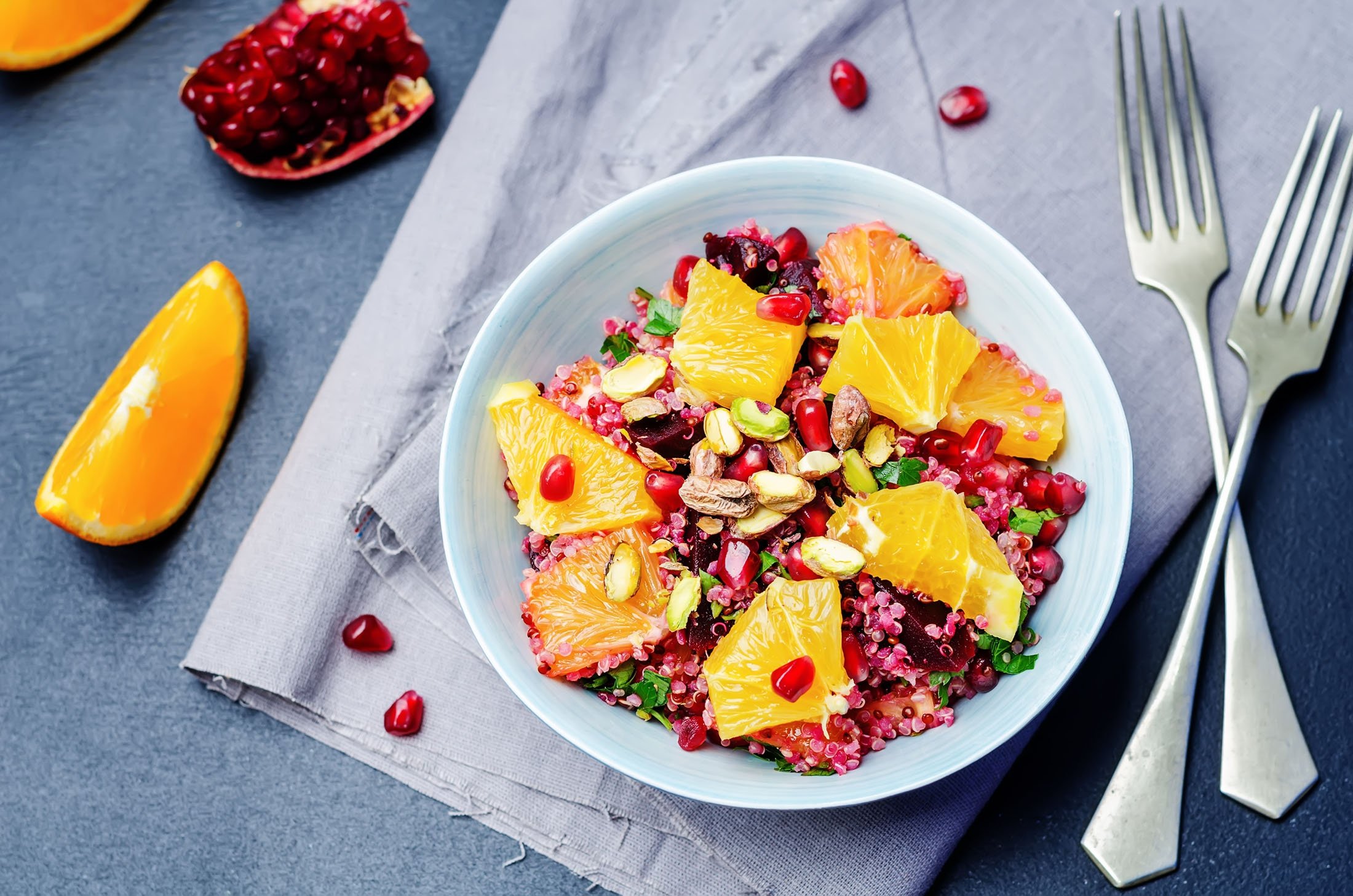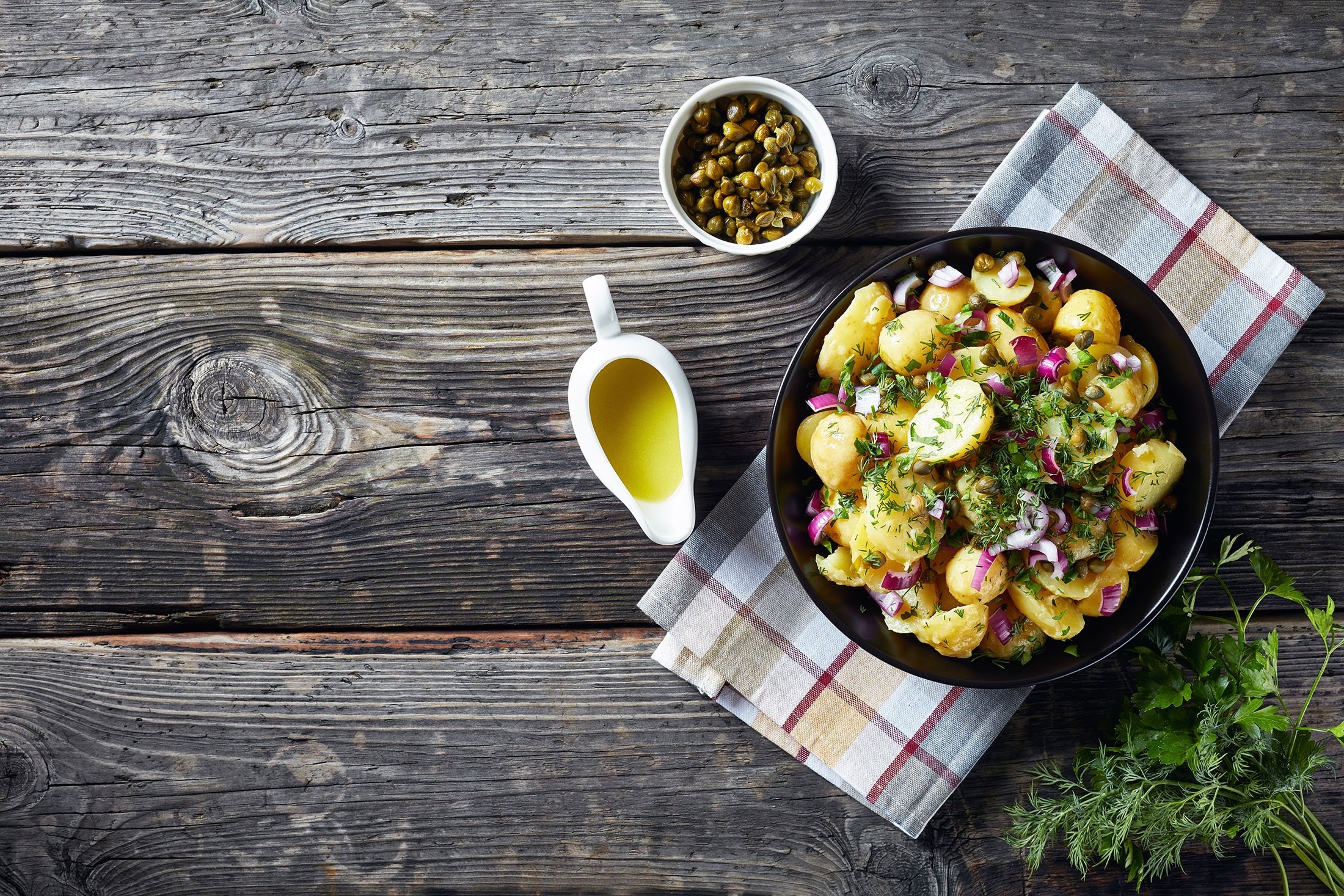© Turkuvaz Haberleşme ve Yayıncılık 2026
Sahur is the name of the meal fasting Muslims eat just before "imsak" when fajr (dawn) starts ringing in the time to remind the faithful to suspend all eating and drinking until sunset. In more basic terms, during Ramadan sahur is your very early breakfast that will help power you through the day. You might be naturally inclined to eat more to compensate for a skipped lunch and snacks, but that’s a mistake: go for quality over quantity.
As someone who loves to get up early but hates to eat anything immediately after getting up, I started to choose my dishes accordingly, i.e. quick, easy to prepare yet nutritious meals. Here are some tips and recipes to make your last few sahurs count.
Like with any balanced diet, you want to cover all the important food groups. You don’t need a nutritionist to tell you that you should eat healthy, but this especially important if you plan not to eat for a prolonged time. Fiber is especially important during Ramadan as many complain of digestive issues and constipation and some of the best sources for that are beans (the British have it right with that kind of breakfast), whole grains, brown rice, nuts, seeds, berries and oatmeal. You can find your protein in eggs, yogurt, beans again, fish and white meat. Finally, to get a dose of healthy fats, make sure toı consume avocados, nuts, olive oil and nut butter. These are only a handful of selections but when you combine these together, you will have something that will keep you satiated for quite a long time. Be sure to avoid anything that is fried!
This might be a no-brainer for many but getting everything ready for sahur will stop you from rushing in those precious minutes just before the call to prayer, and the last thing you want is to eat too fast and cause indigestion, thus preventing you from going back to sleep. Personally speaking, I love to prep an egg salad for the next morning that I had mentioned in our eggs special when I am preparing something for iftar the day before. I am already in the kitchen and cutting up some onions and boiling eggs on the side is no big deal. If you like oats, you can prepare the dry ingredients ahead of time and all you need to do is to add the wet ones in and ta-da: Your meal is served.
Leftovers from iftar are also a viable option for sahur.
As great it is to have a lavish meal ahead of a long day, you need to consider two things: Overeating does not help with keeping hunger at bay or save you time. Turks love to go above and beyond with their meals during Ramadan. Though it can be great to have a feast with friends and family when everyone brings something to the table, in modern life that is not very possible, especially in the morning. If you don’t have any chores or duties in the morning, like sending children off to school or working, you may have the time to go big but most of us have obligations and staying up half the night does not help anyone.
With each year, Ramadan inches closer toward spring and winter, which makes it easier from a thirst perspective, compared to years of previous fasts during the height of summer. As humans, we need lots of fluids and to drink plenty of water; hence, sahur is a great time to replenish this. However, as much as overeating is not healthy, overdrinking can also lead to discomfort during Ramadan. Drinking too much water at once can make you feel nauseous. So why not combine drink and food and hydrate that way? Eating a hearty soup should not be reserved for iftar only. Another way to meet your daily water intake is to go for fruits and vegetables with high water content. Tomatoes, cucumbers, lettuce and watermelons are some of these. Combining them together in a salad or a sandwich will be both refreshing and delicious.
But you must stay away from juices. They may sound like the best option when you crave something sweet, but they are full of fructose. And just because it is "healthy," fruit-derived sugar doesn’t change the fact that it is still sugar. Orange juice is the best example. You need about four to five oranges to fill a glass with its juice. Although it is easy to drink several glasses of juice, eating more than two or three oranges at once is impossible for most. Having the fruit itself instead of the juice may be a healthier option, sahur or not.
Another key thing to keep in mind is to avoid things that will make you thirsty. Overly salty dishes or snacks and fried foods are the biggest culprits. I am a lover of sunflower seeds but especially in Ramadan, I go for the salt-free versions that are thankfully available pretty much everywhere in Turkey.
Having gone over fasting tips and things to consider when choosing meals, here are some ideas for your sahur.
This is the quintessential snack-like breakfast that can have many flavor combinations and fit many tastes! You can play with the proportions I've listed to suit your preferences; take it as an inspiration to make it your own.
Ingredients
Instructions
Mix all the ingredients together except the bananas. Add a few spoonfuls to a sealable container and alternate layering a few slices of bananas with the mixture. Close the lid and refrigerate for at least three to four hours. Get it out of the fridge a few minutes before you want to eat it to help it come to room temperature. Add or top off with more fresh fruit if you like.

Make this with fruit in season to satisfy your sweet tooth or add veggies if you want a more savory take.
Ingredients
Instructions
Lightly toast the oats, quinoa, chia seeds and flaxseed in a bit of olive oil for two to three minutes until it smells, well, toasty. Add the water, lemon juice and zest and bring it to a boil. Let it simmer for 15-20 minutes, then turn the heat off and let the grains cool off completely.
Add the other ingredients in and give it a good mix. Let it rest to help the flavors blend or eat immediately.

Ingredients
Instructions
Boil the potatoes and peel them once they have partially cooled off. Clean and chop the rest of the greens and toss them all in a bowl. Pour lemon juice on top, drizzle the pomegranate molasses and sprinkle a bit of salt. Mix it well.
